Your paid subscriptions to SHERO allow me to continue publishing on this critical issue and provide information to the public, so please consider purchasing one today. If you would like to make a one-time tribute via PayPal, you can click this link now for that option. As always, thank you for taking the time to read and support my work here at SHERO and for helping to provide independent journalism for everyone.
I appreciate you.
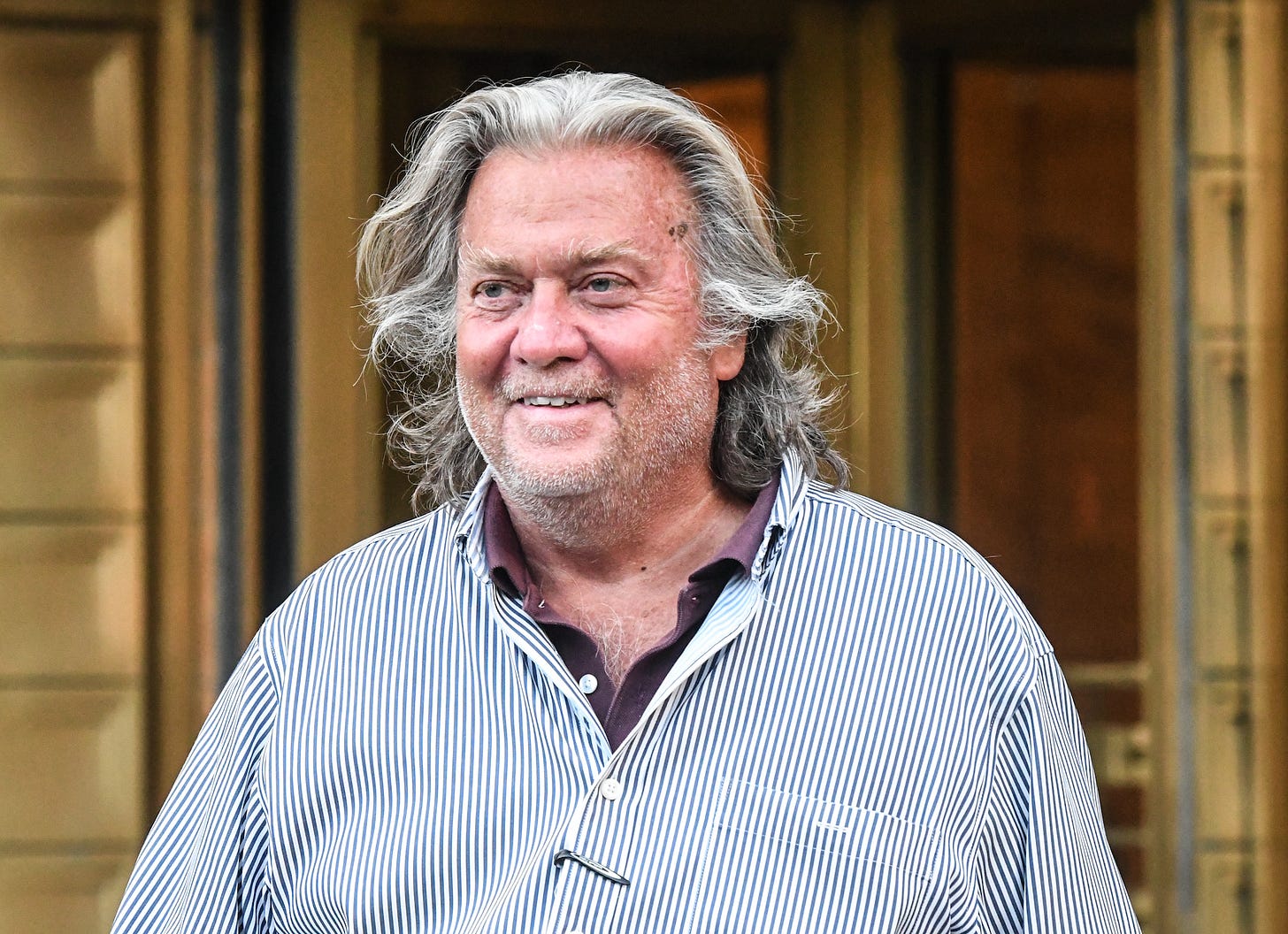
Today is the deadline for Steve Bannon and several other allies of Trump to comply with Congressional subpoenas and testify before Congress. The select committee investigating the Jan. 6 insurrection at the US Capitol issued subpoenas on September 23 to four individuals within the inner circle of former President Donald Trump.
Former White House Chief of Staff Mark Meadows, former Pentagon official and House Intelligence Committee aide Kash Patel, former White House chief strategist Steve Bannon, and former White House social media director Dan Scavino were all formally directed to submit documents pertaining to the investigation by Oct. 7. The final deadline to comply with the subpoena is today, and Steve Bannon has gone out of his way to decline to appear.
Yesterday, Bannon’s attorney, Robert Costello, told the panel via formal a letter that his client is not willing to provide testimony or documents until Trump agrees to the committee’s requests or a court makes a determination that he must. According to Costello: "[Testifying] is an issue between the committee and President Trump's counsel and Mr. Bannon is not required to respond at this time."
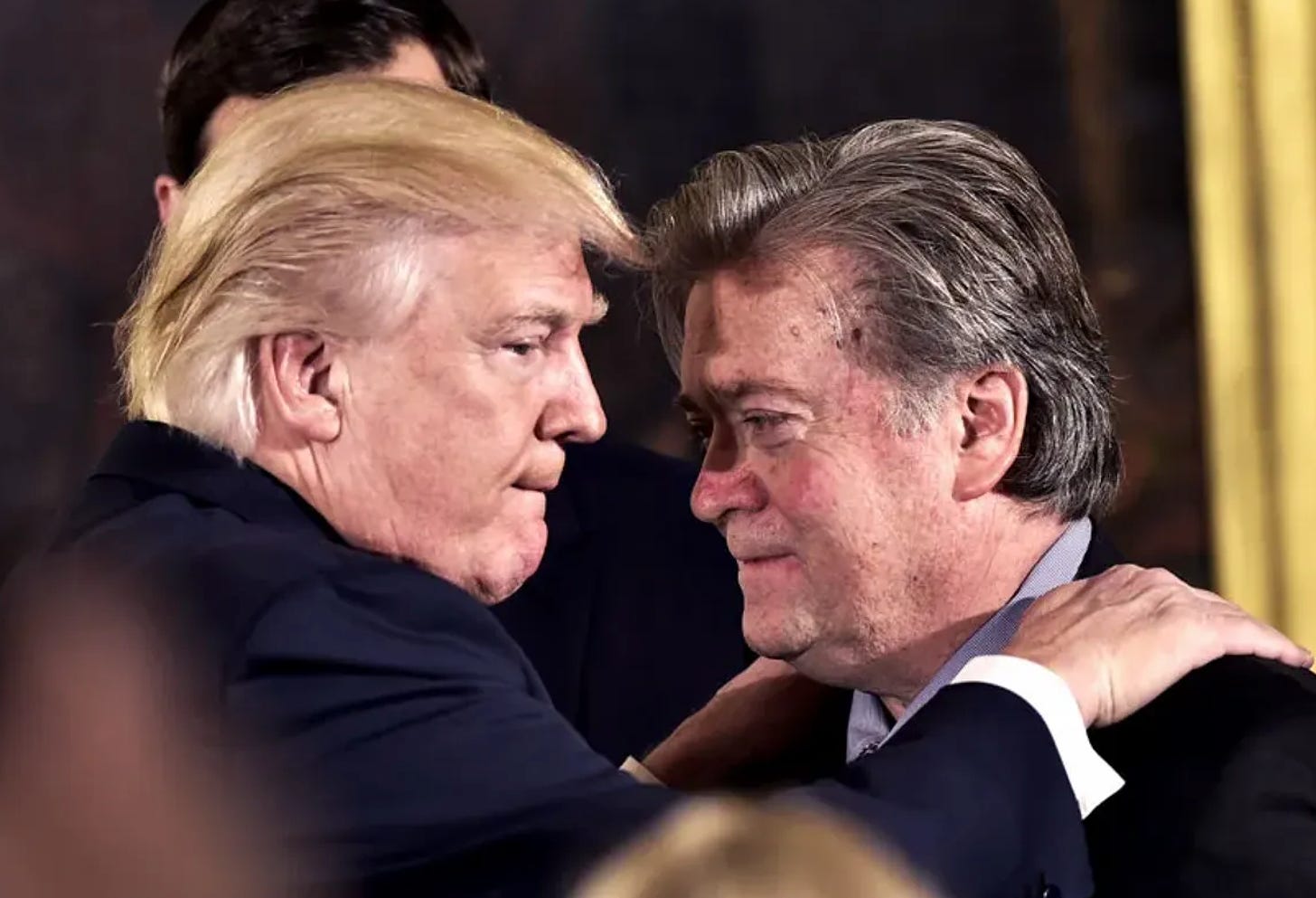
The House investigatory panel issued a statement in September that explained how Bannon, who had departed then-President Donald Trump’s White House years before the Jan. 6 invasion of the Capitol, “has indicated that he will try to hide behind vague references to privileges of the former President.”
The joint statement from Chairman Bennie Thompson (D-MS) and Vice-Chair Liz Cheney (R-WY) continued: “Though the Select Committee welcomes good-faith engagement with witnesses seeking to cooperate with our investigation, we will not allow any witness to defy a lawful subpoena or attempt to run out the clock, and we will swiftly consider advancing a criminal contempt of Congress referral.”
Although Bannon has defied these subpoena requests before, specifically when he refused to cooperate with the Congressional investigation into allegations that Russia sought to influence the 2016 presidential election in the United States, this time there will likely be legal consequences.
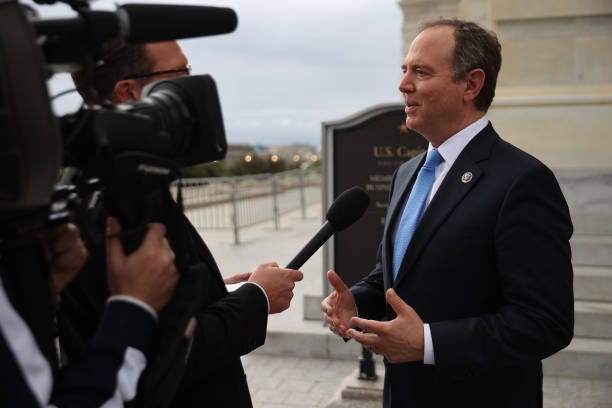
"The reason why some of these witnesses, people like Steve Bannon, who have been public about their contempt for Congress feel they can get away with it is for four years, they did," committee member Rep. Adam Schiff (D-CA) told MSNBC on Wednesday. Schiff continued, "[Bannon] would never be prosecuted by the Trump Justice Department — but those days are over.”
Any legal argument that Bannon may be tempted to make regarding his conversations and actions being shielded by Executive Privilege is a tremendous legal stretch. Bannon’s response letter to the committee states that 'the President' can make executive privilege determinations, but Trump is no longer a sitting president.
Moreover, the current president, Joe Biden, has formally stated that he will not be holding back materials or testimony under a claim of privilege. White House Press Secretary Jen Psaki confirmed at a briefing last Friday that Biden “determined that an assertion of executive privilege is not warranted for the first set of documents from the Trump White House that have been provided to us by the National Archives.” She also added that Biden will evaluate future questions of executive privilege “on a case-by-case basis.”
Bannon had not been working for Trump or the White House for several years leading up to January 6, so his claims of executive privilege are especially far-reaching. Perhaps the biggest factor influencing Trump and his allies to reject the legal subpoenas, was the previous protections they all enjoyed, thanks to the willingness of former Attorney General William Barr to shirk his legal duties.
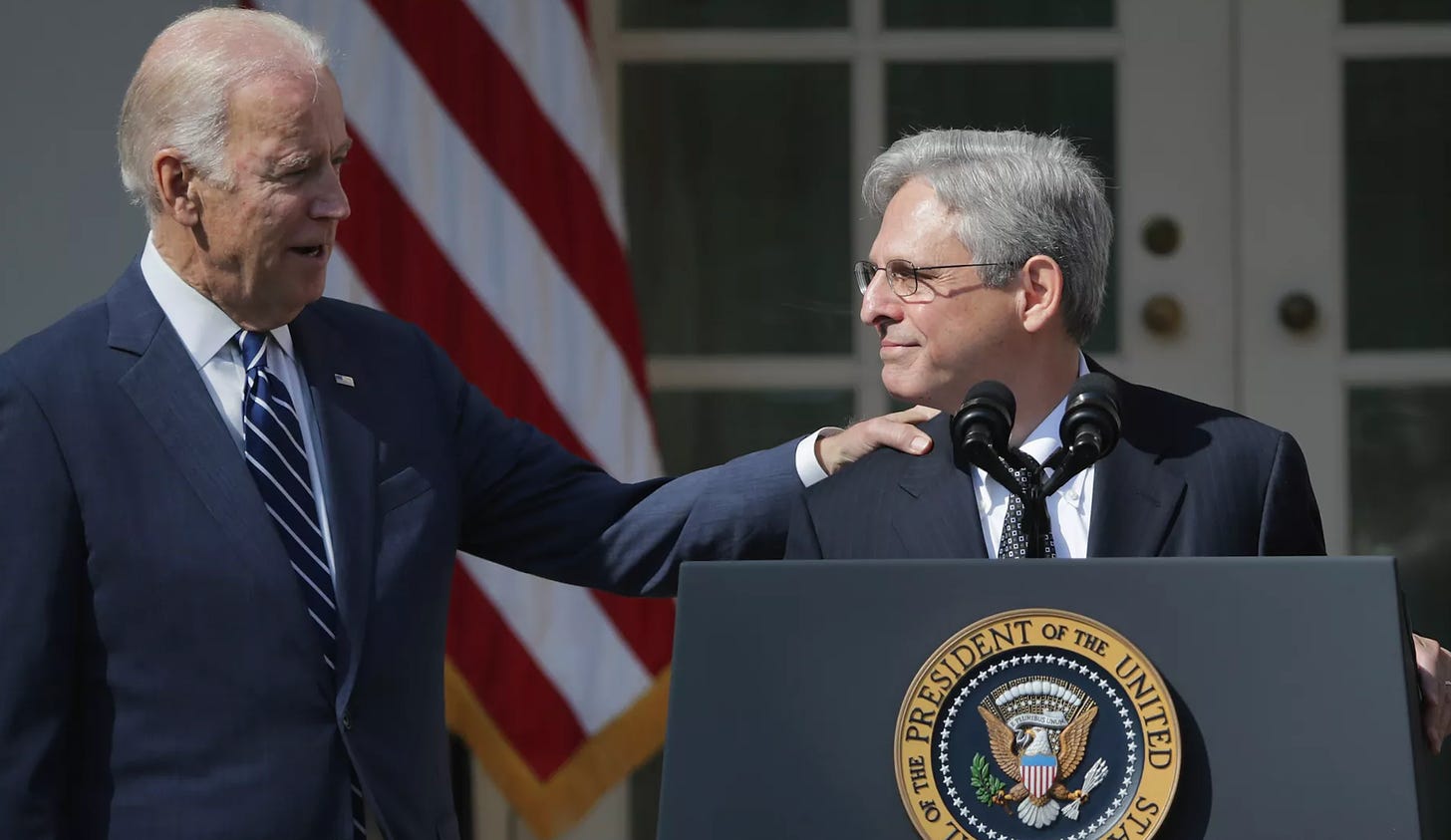
Merrick Garland is now attorney general — and while he might hesitate to get involved with a legal scuffle that appears to be political on its face — he will no doubt enforce the law, when and if it is broken. Rep. Schiff reinforced this when he explained how much the shift in the legal guard has changed things for Trump’s inner circle. Schiff also called the enforcement of the subpoenas and the rule of law “essential to [the] investigation” and “an early test of whether our democracy is recovering."
Now that President Biden is willing to support the actions of Congress, and Merrick Garland is likely willing to pursue criminal contempt charges for failing to comply in the court system, there is a clearer path to enforcing the requests of the Jan. 6th Committee. The following is an excerpt from a Congressional Research Service Report in March of 2019, on the legal process of enforcing subpoena compliance:
“When Congress finds an inquiry blocked by the withholding of information by the executive branch, or where the traditional process of negotiation and accommodation is inappropriate or unavailing, a subpoena—either for testimony or documents— may be used to compel compliance with congressional demands. The recipient of a duly issued and valid congressional subpoena has a legal obligation to comply, absent a valid and overriding privilege or other legal justification. But the subpoena is only as effective as the means by which it may be enforced. Without a process by which Congress can coerce compliance or deter non-compliance, the subpoena would be reduced to a formalized request rather than a constitutionally based demand for information.
Congress currently employs an ad hoc combination of methods to combat non-compliance with subpoenas. The two predominant methods rely on the authority and participation of another branch of government. First, the criminal contempt statute permits a single house of Congress to certify a contempt citation to the executive branch for the criminal prosecution of an individual who has willfully refused to comply with a committee subpoena. Once the contempt citation is received, any prosecution lies within the control of the executive branch. Second, Congress may try to enforce a subpoena by seeking a civil judgment declaring that the recipient is legally obligated to comply. This process of civil enforcement relies on the help of the courts to enforce congressional demands.
The authority of Congress to cite an individual with Criminal Contempt is found in Title 2, Section 192 of the US Code. It states that anyone summoned by either house of Congress "to give testimony or to produce papers" regarding any matter of inquiry who "willfully makes default" or "refuses to answer any questions pertinent to the question under inquiry" has committed contempt of Congress.
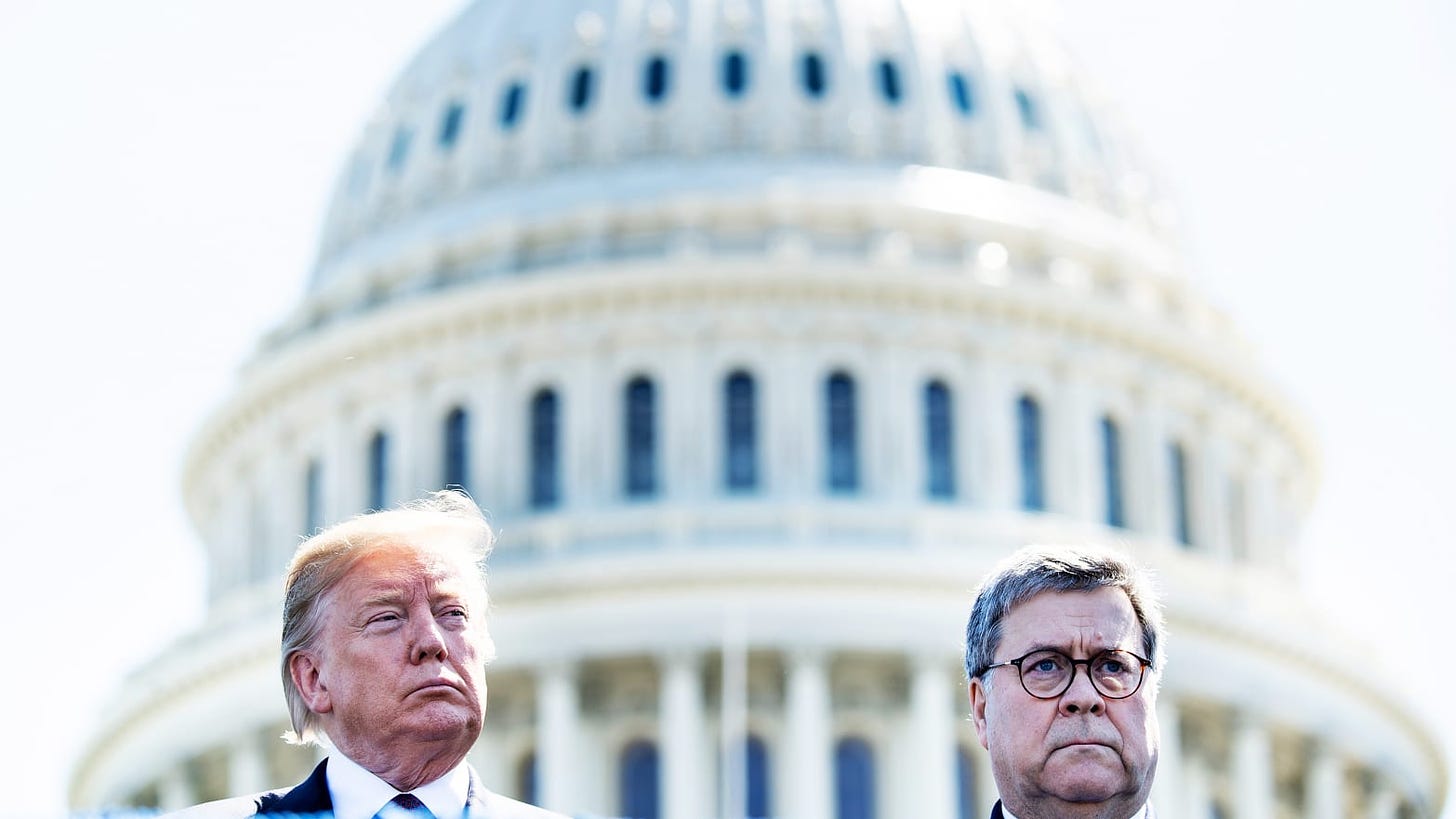
Although considered a misdemeanor, a person found guilty of committing criminal Contempt of Congress, after being charged by the Department of Justice or the US Attorney's Office for the District of Columbia, could face the following penalties: a fine of up to $1,000 and a jail term of one to 12 months.
Ultimately, a contempt citation is a purely symbolic gesture, unless the DOJ or US Attorney decides to prosecute. It’s is important to note that if Merrick Garland declines to use the Justice Department to pursue the case, the US Attorney in DC can also pursue charges against Bannon and the others.
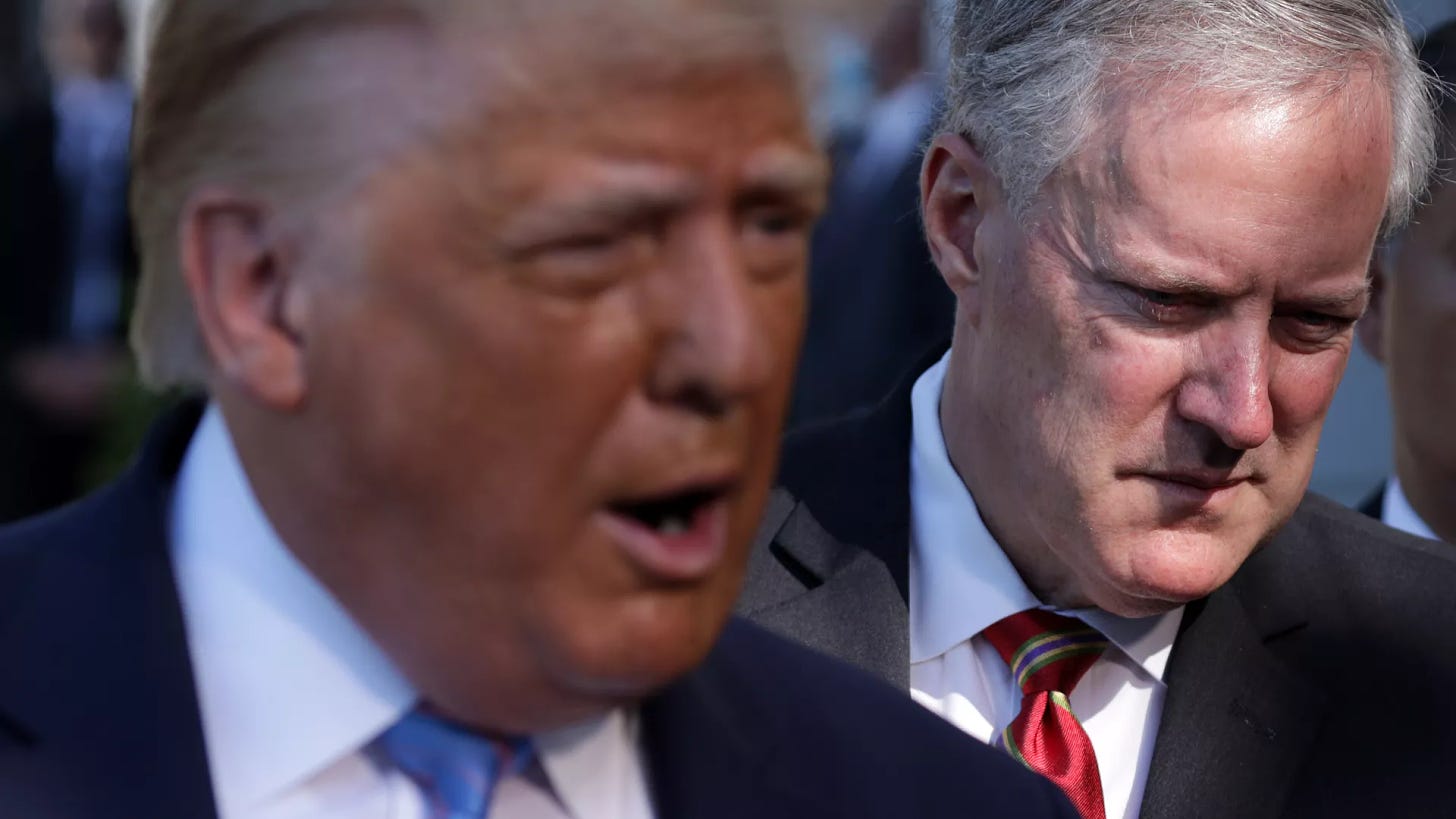
Three other Trump allies also face subpoena deadlines this week. Two of them, Trump's former chief of staff Mark Meadows, and former administration official Kash Patel have been "engaging" with the committee, according to the panel, though it remains unclear if that contact amounts to any form of cooperation. Patel is not expected to appear before the committee today, but multiple sources have confirmed to CNN that Patel is still negotiating with the committee over the details of his possible testimony.
The committee was only able to serve Trump's former Deputy Chief of Staff Dan Scavino with a subpoena last Friday after the process server struggled to physically locate him for weeks. Scavino was finally served at former President Donald Trump's Mar-a-Lago resort in Florida by proxy, after Scavino, who was at his home in New York at the time, told a Mar-a-Lago staff member to accept the subpoena on his behalf.
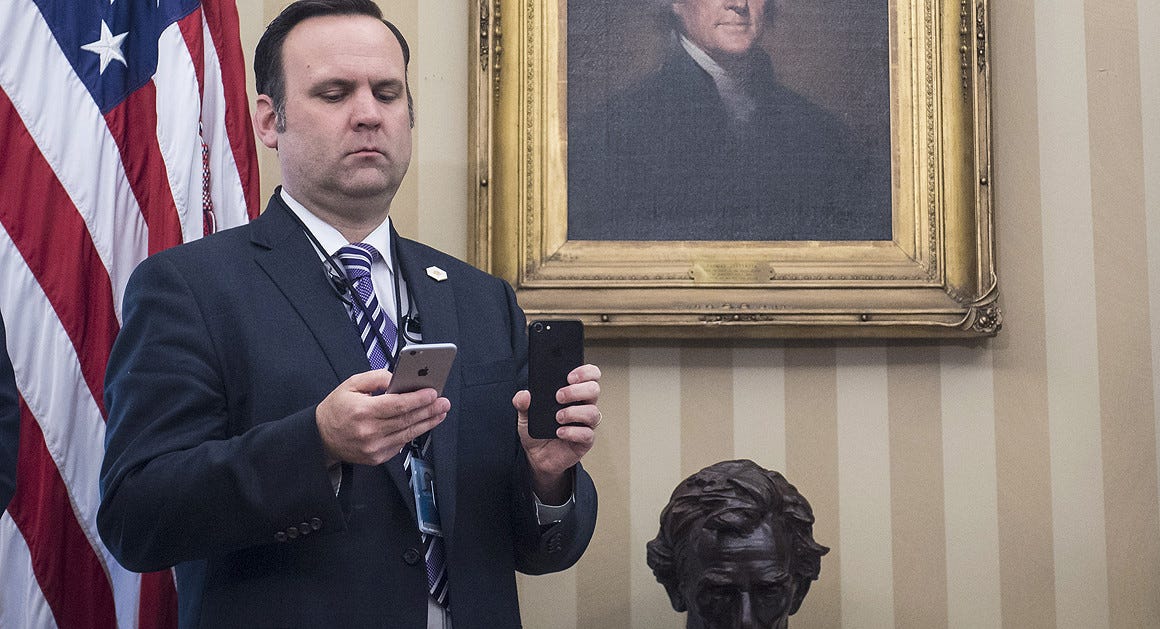
It is unclear how soon the select committee would be willing to push a criminal contempt referral forward in the courts, but the House could certify a contempt citation to the executive branch for criminal prosecution by close of business today. Perhaps the clearest indication of what the House is prepared to collectively do came from Rep. Schiff on MSNBC earlier this week when he said, "If witnesses do not show up, we will hold them in criminal contempt —we will vote them in contempt in the House, and we will refer them for prosecution."
Amee Vanderpool writes the SHERO Newsletter and is an attorney, published author, contributor to newspapers and magazines, and analyst for BBC radio. She can be reached at avanderpool@gmail.com or follow her on Twitter @girlsreallyrule.
Paid subscriptions and one-time tributes embedded in each article, allow me to keep publishing critical and informative work like this, that is often made available to the public — thank you. If you like this piece and you want to further support independent journalism, you can forward this article to others, get a paid subscription or gift subscription or donate once, as much as you like today.




I sincerely hope that the Committee does not rely solely on Merrick Garland's Justice Department to prosecute these blackguards. They deserve to feel the full weight of the law for their intransigence, and anything less will just empower the next round of nose-thumbing. I am not entirely sure that Garland is willing to go the distance needed in this case.
I wonder how Bannon is spinning this to his (large) podcast audience.
I've not seen anyone in this whole movement to overthrow our government who is more severely underestimated than Bannon.
He is the driving intellectual force behind coalescing the interests of many global oligarchs and the populist forces in the US that he helped marshal for Trump.
Expect cries of political persecution to be leveraged as a spark to further lawlessness and call for succession etc. from nutbag Republican governors and pols.